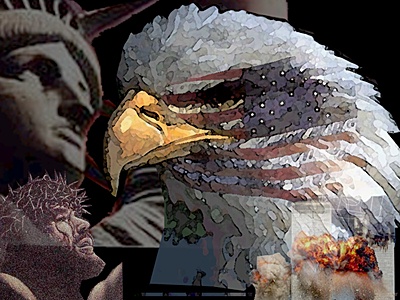All Nonfiction
- Bullying
- Books
- Academic
- Author Interviews
- Celebrity interviews
- College Articles
- College Essays
- Educator of the Year
- Heroes
- Interviews
- Memoir
- Personal Experience
- Sports
- Travel & Culture
All Opinions
- Bullying
- Current Events / Politics
- Discrimination
- Drugs / Alcohol / Smoking
- Entertainment / Celebrities
- Environment
- Love / Relationships
- Movies / Music / TV
- Pop Culture / Trends
- School / College
- Social Issues / Civics
- Spirituality / Religion
- Sports / Hobbies
All Hot Topics
- Bullying
- Community Service
- Environment
- Health
- Letters to the Editor
- Pride & Prejudice
- What Matters
- Back
Summer Guide
- Program Links
- Program Reviews
- Back
College Guide
- College Links
- College Reviews
- College Essays
- College Articles
- Back
Longfellow: A Fireside Poet
The fireside poets were a group of extremely famous writers and poets during the late 1800s. Henry Wadsworth Longfellow, writer of “A Psalm of Life”, is one of these poets. Within his poem, Longfellow uses figurative language to keep the audience engaged. He also uses it to encourage people to be their own person. Longfellow does an outstanding job of conveying this message through this beautiful piece of literature.
Longfellow exploits the use of figurative language throughout his poem to keep the reader interested. He uses metaphors to compare many things in “A Psalm of Life”. One example of a metaphor that Longfellow uses is, “Life is but an empty dream” (Longfellow 2). He is juxtaposing life to a dream that is uninhabited. Longfellow exploits the use of similes through the whole of his poem. He reveals this technique when he says “Our hearts… like muffled drums are beating” (14-15). Longfellow is describing the beating of a person’s heart as the pounding of drums. Both metaphors and similes are used throughout Longfellow’s poem to ensure he has the audience’s attention.
Each person has different feelings of different elements within Longfellow’s poem. The poem encourages people to be unique in their own way and not try to act as society does. Longfellow demonstrates this when he says, “Be not like driven cattle! Be a hero in the strife” (19-20). This line in the poem evokes a sense of motivation to be a better person and fight for what is right. In Longfellow’s poem, he demonstrates that we should all make our lives as meaningful as possible. He evokes this feeling when he says, “Lives of great men all remind us we can make our lines sublime” (25-26). These lines in the poem produce a feeling that inspires people to make an impact on the world. Longfellow develops different feelings of emotion in all aspects of his poem.
Longfellow exploits the use of figurative language in “A Psalm of Life” to allow the audience to be more engaged in the poem. He also allows the reader to come up with their own interpretations of the poem. Henry Wadsworth Longfellow was a prominent member of the Fireside Poets and had much to contribute to society.

Similar Articles
JOIN THE DISCUSSION
This article has 0 comments.
